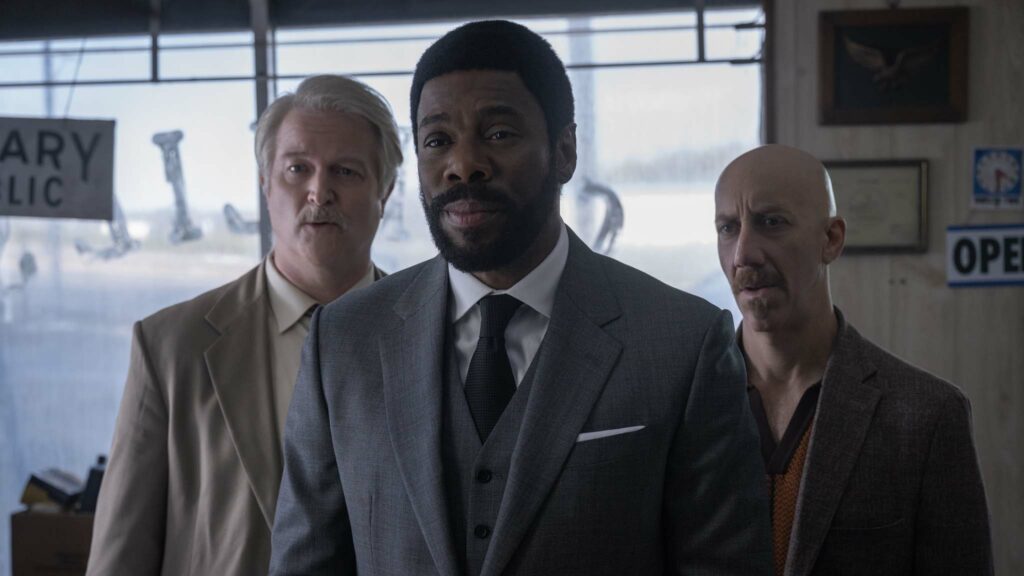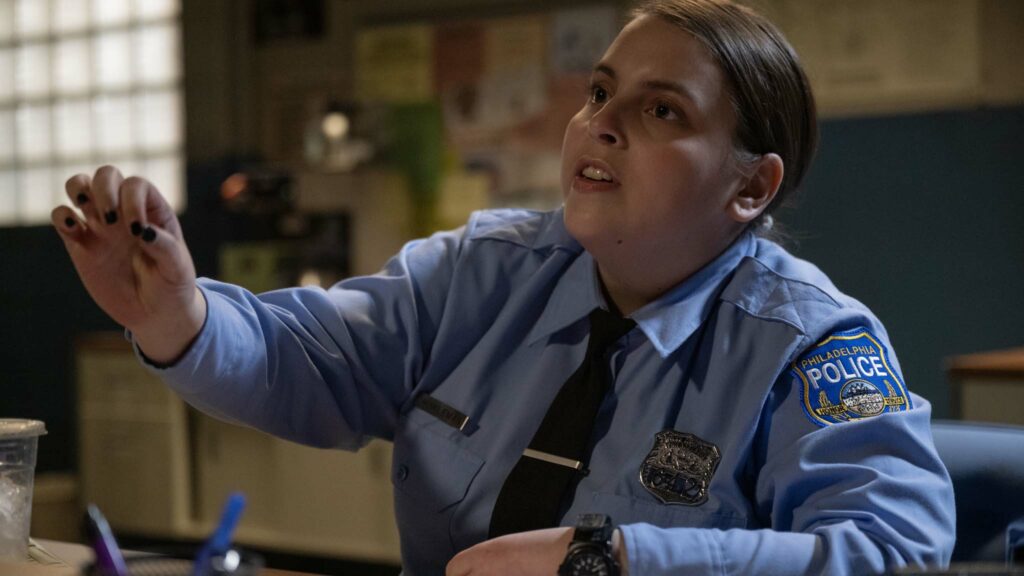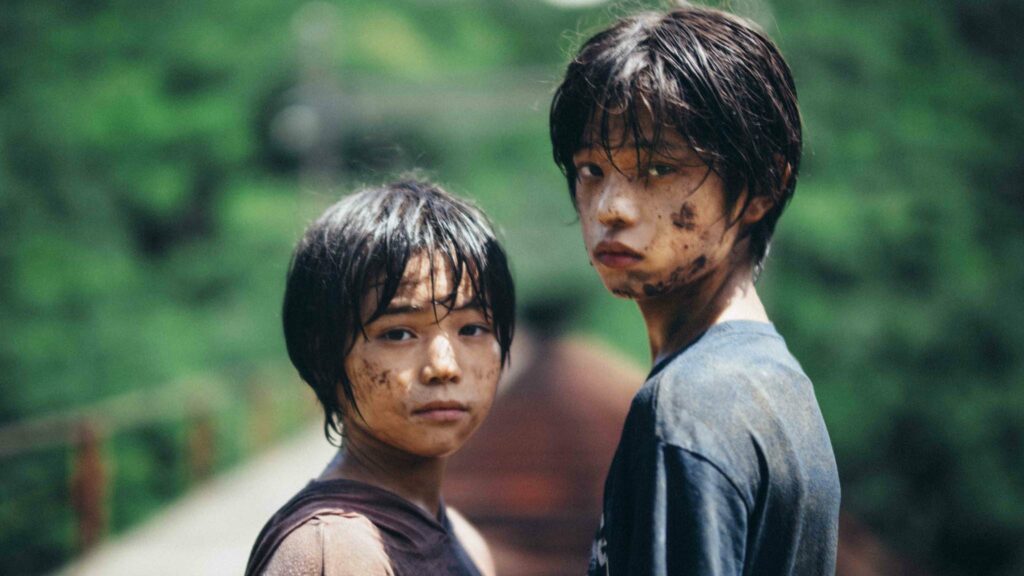Comedy
Drive-Away Dolls (15)
Review: Ethan Coen’s Drive-Away Dolls is a road-trip romp like no other, packed full of queer joy, genitalia jokes and hilarious twists and turns. Dripping with classic Coen comedy, the film follows lesbian friends Jamie and Marian (played by Margaret Qualley and Geraldine Viswanathan respectively) as they hit the road to Florida to escape their woes. Jamie’s a free-spirit, not least when it comes to fidelity – much to the chagrin of her girlfriend Sukie, played by Beanie Feldstein – while Marian is uptight and sexually restrained, having not been with anyone since her last relationship, years ago.
Caught cheating and kicked to the curb by Sukie, Jamie’s looking for an escape. Discovering Marian is driving to Florida to visit her aunt, she decides to come along for the ride, wanting to visit as many lesbian bars and bizarre roadside attractions along the way as she can. The pair pick up a drive-away car – a free rental on the promise that they deliver it to its intended destination which, conveniently, is Tallahassee – and away they go. But, of course, it’s not that simple: the car was intended to be picked up by a criminal gang who had stowed some precious cargo in the trunk.
With goons on their tail, the girls’ road trip changes from a tour of the Eastern Seaboard’s lesbian scene to the most bizarre journey of their lives, as they discover the secret briefcase contains something beyond their wildest imaginations. The comedy is filthy, the characters hilarious caricatures of themselves, and it’s impossible not to fall a little bit in love with Qualley’s Jamie with her southern drawl and devil-may-care attitude.
However, watching Drive-Away Dolls feels a bit like being inside a pinball machine, bouncing around surrounded by flashing lights and zingy colours, which makes it hard to get fully invested. It’s interesting to watch films made by the individual Coen brothers, because you see why the directing duo works so well as a pair. Even their most raucous of comedies manage to achieve some gravitas that keeps you hooked, but sadly that dramatic draw is missing from Drive-Away Dolls.
There are hints of Burn After Reading and The Big Lebowski in its eccentricity and capers, but it’s missing a bit of weight to keep it grounded. That said, the queer joy is palpable – the screenplay was created by Ethan and his wife Tricia Cooke, who identifies as queer and drew from her own experiences of the 90s lesbian scene – and it marks an exciting development in LGBTQ+ cinema as a film rich in fun, dirty silliness. It might lack some substance, but Drive-Away Dolls is a fun joyride nonetheless.
Find Drive-Away Dolls in the cinemas
Drama
Monster (12A)
Review: There are two sides to every story. Japanese filmmaker Hirokazu Kore-eda spoils us with a crucial third perspective to his exquisitely delicate drama about abuse at a Tokyo elementary school. Lessons learnt from Kore-eda’s earlier work remind us that human relationships, even the messy and toxic ones, cannot be adequately sketched in black and white. Redemption, regret and compassion exist in shades of grey and the film’s title shapeshifts in meaning as key events replay through fresh eyes, supplanting rumour and insinuation with undeniable cold, hard facts.
Screenwriter Sakamoto Yuji demonstrates restraint in his carefully structured approach, anchoring characters’ recollections to the same event: fire engines racing to a blaze at a Tokyo hostess bar. One stray spark of suspicion can create a raging wildfire that decimates communities and reduces childhood innocence to smouldering embers. Kore-eda has an enviable track record of coaxing powerhouse performances from child actors. The young leads in Monster, Soya Kurokawa and Hinata Hiiragi, shoulder the film’s emotional weight with disarming ease. Both deliver heartbreaking, naturalistic performances that nimbly and sensitively traverse difficult subject matter. Japanese composer Ryuichi Sakamoto, who won the Oscar for his orchestrations to The Last Emperor, conjures an elegiac score – a final act of creative alchemy before his death last year. The film is dedicated to his memory.
Single mother Saori Mugino (Sakura Ando) grows increasingly concerned about her young son Minato (Soya Kurokawa) following the death of his father. She discovers clods of mud in the boy’s water bottle and he returns home from school with only one trainer. With considerable patience and tenderness, Saori teases the truth out of her boy: he is being cruelly mistreated by class teacher Michitoshi Hori (Eita Nagayama). Saori demands decisive action from the school and she is awestruck by the reluctance of principal Makiko Fushimi (Yuko Tanaka) to admit fault or punish Mr Hori.
“We have confirmed there was contact between the hand and the nose,” the principal reads from carefully worded notes held by the vice-principal (Akihiro Tsunoda). Honouring a promise made to her late husband, Saori fights to protect Minato. As the case attracts media interest, events rewind, chronicling distress through the eyes of Mr Hori and then young Minato and classmate Yori (Hinata Hiiragi).
Monster is a haunting ode to the hushed secrets of childhood, which sustains tension and discomfort for more than two hours by cleverly staggering knockout blows between chapters. The tricksy conceit subtly shifts our sympathy as preconceptions and assumptions come back to bite us, drawing blood and tears. “Happiness is something anyone can have,” principal Fushimi counsels one of her young wards. The conflicted and misunderstood characters of Kore-eda’s extraordinary film would respectfully beg to differ.
Find Monster in the cinemas









